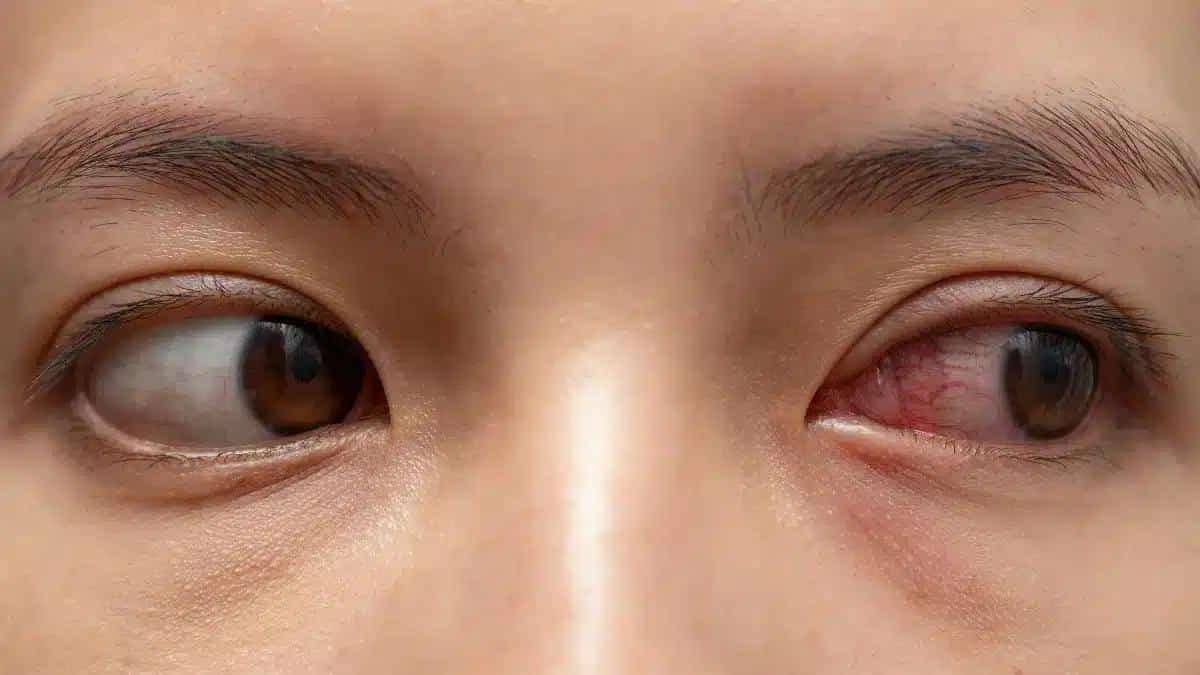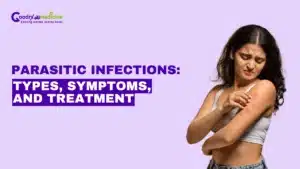Eye pain, also referred to as ocular pain, can be discomforting and distressing.
It may appear in various ways, and one of the most common complaints is pain in the eye.
Understanding the appropriate treatment for the specific cause of eye pain is essential for recovery.
Treatments vary widely, from simple home remedies to medical treatments and surgery.
In this article, we’ll discuss treatments available for eye pain and when to seek medical help.
Available treatments for eye pain
Eye pain, or Ophthalmia, refers to discomfort or aching sensation in and around the eyes.
Eye infections, Glaucoma, Dry Eyes, Migraine, and Cataract surgery are common eye pain causes.
Addressing eye pain requires a complex strategy that includes a variety of treatments depending on the underlying cause.
Artificial tear drops, antiviral medications, and surgical interventions help treat eye pain.
Let’s discuss treatments for eye pain in detail:
Home remedies for eye pain
 Source: Denisfilm_From_Getty_Images
Source: Denisfilm_From_Getty_ImagesFor minor eye irritation and discomfort, home remedies can often provide relief.
If the pain is due to fatigue or strain, resting the eyes can help.
Warm compresses can alleviate discomfort from a Stye or relax the muscles after long screen use.
Anti-inflammatory benefits of tea bags and witch hazel can help with eye pain during infections.
Artificial tears or lubricating eye drops can soothe Dry Eyes and extend the use of contact lenses.
If these methods don’t alleviate the pain or the object is embedded, seek professional medical attention.
Medical treatments
Appropriate medical treatment is determined by identifying the underlying cause of eye pain.
Antibiotic eye drops or ointments are commonly prescribed for bacterial infections such as Pink Eyes or Corneal Ulcers.
Antiviral medications may be necessary for viral infections like Herpes Simplex Keratitis.
Ibuprofen and other pain relievers can be beneficial in managing Migraine eye pain.
Anti-inflammatory medications, such as Cyclosporine, may be prescribed for eye pain due to Dry Eyes.
Always follow the guidance of a doctor when using medications for eye pain to avoid complications.
Surgery and other procedures
Some eye conditions that cause pain may require surgical intervention.
For instance, Cataracts can be removed with surgery, which alleviates pain and restores vision.
Glaucoma might necessitate laser treatment or surgery to reduce eye pressure.
In some individuals, laser eye surgery can also correct refractive errors that may be causing chronic eye strain and pain.
It is crucial to have a proper diagnosis before proceeding with any treatment.
When to seek medical help for eye pain
 Source: pixelshot
Source: pixelshotSeeking medical help for eye pain is crucial under certain circumstances.
If you experience constant eye pain, redness, light sensitivity, and discharge, immediate medical attention is required.
Eye injuries or growing discomfort requires a visit to an eye care specialist.
Leaving eye pain untreated can lead to vision loss, Keratitis, or Corneal Ulcer.
Eye pain can indicate medical conditions such as Glaucoma, or Uveitis and eye infections such as Pink Eye.
Early diagnosis is essential to prevent potential underlying causes and side effects.
Summing up
Eye pain is a sensation of discomfort in and around the eyes; it can range from mild to throbbing pain.
Dry Eyes, eye injury, Migraines, and eye infections are some factors that can lead to eye pain.
Various treatments for eye pain depend on the underlying causes.
Some home remedies for eye pain are warm compress, tea bags, and witch hazel.
Eye pain can be relieved with artificial tears or lubricating eye drops for Dry Eyes and extended use of contact lenses.
Your doctor may prescribe antiviral or anti-inflammatory medications for eye pain.
In severe cases, individuals may opt for surgery to reduce eye pressure and pain.
If you experience severe or persistent eye pain, it is essential to consult your doctor.
Frequently Asked Questions
What are common over-the-counter treatments for eye pain?
Common over-the-counter treatments for eye pain include lubricating eye drops for soothing dryness.
Artificial tears provide additional moisture for relief. Compresses are effective for reducing inflammation or irritation.
Always consult with a healthcare professional for persistent pain.
Can home remedies be effective for treating eye pain?
Warm compresses, good eye hygiene, and adequate rest can be effective home remedies for mild eye pain.
When should I seek medical attention for eye pain?
It is essential to seek medical attention for eye pain if it is severe, persists, or is accompanied by changes in vision, redness, discharge, or sensitivity to light.
Immediate care is crucial for sudden onset, injuries, or worsening symptoms.
How long does it typically take to see improvement with eye pain treatments?
The duration for improvement with eye pain treatments varies based on the underlying cause and treatment approach.
Mild cases may show relief within days, while chronic conditions require ongoing management.
Consult with a healthcare professional for tailored advice.
Can allergies cause eye pain?
Yes, allergies can cause eye pain. Treatment involves avoiding allergens, using antihistamines, and applying lubricating eye drops.
Seeking medical advice is essential for an accurate diagnosis and an effective management plan tailored to specific allergens causing discomfort.
When referencing outside resources, GoodRxMedicine always provides full citations. To learn more about the measures we use to maintain the quality of our content, please review our Content Information Policy.











